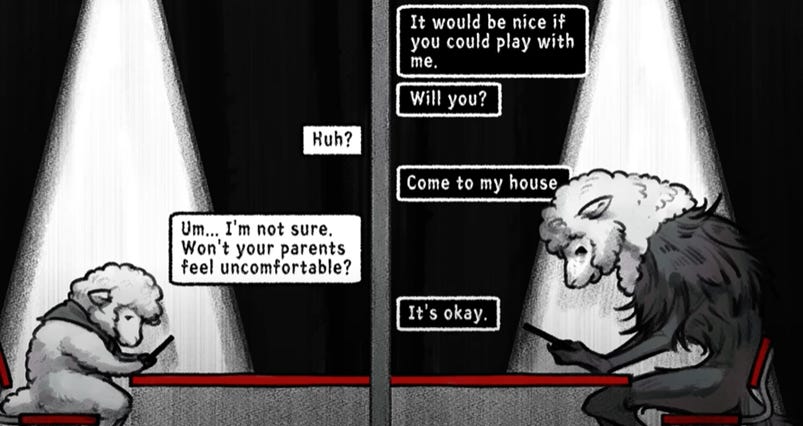How to Protect Future Generations From the Twenty Six Words That Ruined the Internet
Why and how Section 230 should be reformed to protect children and future generations.

If platforms cannot or will not protect children, who will? Parents? They can’t. There is no such thing as giving a digital house arrest. What kids do on their phones while alone in their rooms or in school with friends is as good as impossible to keep track of.
Under normal circumstances, the government would step in to protect children from harm when parents are unable to. That is, after all, why we pay taxes. However, when it comes to protecting kids on online platforms, the US government seems just as powerless as parents are.
BigTech companies have become unusually powerful and hard to regulate because of enormous economic bargaining power, lobbying efforts and the unintended aftereffects of a thirty-year-old law that is colloquially known as Section 230.
Section 230 was added to the Communications Decency Act in 1996 in an effort by US policymakers to protect children online from “indecency”, including porn and uncomfortable grownups. Unfortunately, it has achieved the opposite result. Due to an expansive interpretation of Section 230’s scope applied early on by the courts, the law has worked as an accountability sink for online platforms, shielding them from civil lawsuits while not obligating them in any shape, way, or form to moderate indecent material.
Section 230 was designed for a different time. When it was adopted in 1996 people had to dial-in a phone number to access the internet through a modem connection. Internet speed and bandwidth had not yet developed to a point where it could support any kind of streaming and it was normal to have to wait a few minutes before a webpage loaded, especially if it had images. People used landline phones to communicate and the closest thing most people had to social media accounts were personal ads in the newspaper and call-in shows on the radio and television.
It was a simpler and better time. Before the age of monsters. (CC Giuliano da Empoli) Technology was less developed and the quality of life was higher. Human civilization evolved around humans, not data collection. Antitrust laws were enforced in the US, so companies were regulated by healthy competition. The future of the internet seemed bright and exciting. The government listened affectionately to the wide-eyed dreamers from California and treated them like special children. Then, they gained too much power and influence, lost the public’s admiration, turned sociopathic, and started cutting off the hand that was feeding them.
Section 230 was from a time people now long for. Even young people who were not born at the time, feel a sense of nostalgia towards the 1990s. Back then, people enjoyed each other’s company without the constant distraction of phones. Instead, people had barbeque parties with their neighbors, spent coins on an arcade machine, found their way with a map in the auto camper or got lost together without a GPS, watched drive-in movies under the stars, and told stories around the bonfire.
At least that’s the message transmitted in a trend of AI-generated videos that glorify life in the 90s and 80s. But there is something to it. The peace and optimistic innocence of that bygone era have been lost. The internet was supposed to serve humankind by promoting civil rights, free speech and individual autonomy, but instead it became monopolized, repurposed to surveil, track, addict, and monitor us.
No matter what capital investors and certain social media users may say, generative AI cannot fix the broken infrastructure of the internet. Indeed, it’s impossible to see how a sense of peace and sanity can be restored in societies, unless the attention-harvesting business model of social media companies is regulated outside of their private walled gardens. Internet laws in the US should reflect what the internet looks like today, not what is looked like thirty years ago.
My paid analysis below is dedicated to casual readers and experienced legal scholars alike. We will look in more detail at how:
Section 230 is antiquated and unfit to deal with the contemporary internet
Certain courts have interpreted the scope of Section 230 differently from the intentions of Congress
Why and how Section 230 should be reformed



